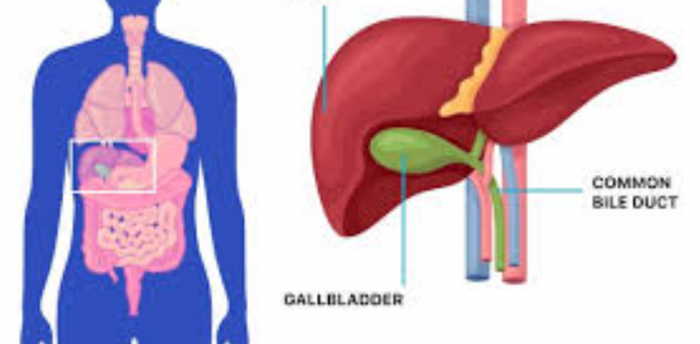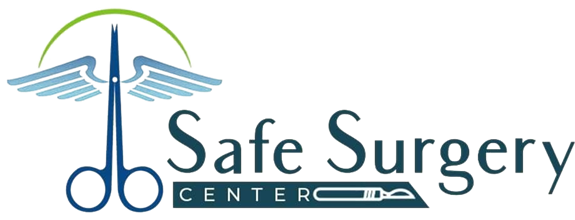
Gall bladder and myths busted
WHY IS GALLBLADDER CANCER SO COMMON IN INDIA? AND SOME MYTHS REGARDING GALLBLADDER.
Did you know that India i
has one of the incidences of gallbladder cancer in the world? This is unfortunate, but that is the reason the surgeon and surgical oncologist in India understand this disease better than most cancer specialists in the rest of the world. Since most data and protocols for the evaluation and treatment of cancers in the world are based on guidelines formulated in the West, they may not be the most accurate and effective way to manage this so called ‘Indian’ disease.
But why is gallbladder cancer so common in India? The reported incidence is around 9/100000 women in Northern India. That is excrutiatingly high! The primary reason is that the incidence of gallstones is extremely high in North India, more so in women. Especially the Gangetic belt below the Himalayan range. 95% of gallbladder cancer patients have gallstones which were probably the cause. We understand that the chronic irritation of the stones on the gallbladder wall leads to the eventual development of cancer. This is the reason that is advisable and indicated to remove a gallbladder that has stones, even if there are no symptoms as said by Dr Karan R Rawat ,the best gall bladder surgeon in uttar pradesh. All gallbladders should be sent for histopathology (biopsy) after removal to ensure that there is no incidental cancer. Sometimes, gallbladder cancer may develop even when there are no gallstones. Our diet and lifestyle also play a very
Pivotal part. Other gallbladder diseases can also contribute to the development of cancer such as gallbladder polyps, porcelain gallbladder, abnormal bile ducts, and other related diseases.
Cancer surgeon and laproscopic surgeon in agra, therefore strive to ensure that patients here receive the best possible care, and are also formulating guidelines and protocols of their own to best help these patients. With a better understanding of this dreaded disease, we in India should have superior outcomes in treating this disease, which may help to benefit people in other countries as well.
Many patients present to us (safe surgery center,agra) with ultrasound reports showing gallstones for opinion. Obviously most of them used to google their symptoms related to gall stones and their various management options which not only confuses patients but also lead to unnecessary stress. I am highlighting myths around gallstones and will try to give facts as per medical literature.
Myth 1:Getting abdominal pain due to gallstones
Many people have acidity or reflux symptoms which are common and many times confuses with symptoms related to gall stones. Your doctor can differentiate whether your pain is related to gallstones or not.
Most Gallstones are asymptomatic
Only 2-3% per year develops symptoms (Biliary colic – characteristic pain of gallstone) or complications (cholecystitis, pancreatitis, choledocholithiasis, Gall bladder cancer) related to gall stones. But once symptoms appears there are more than 30% chances of getting repeated symptoms related to gallstones.
Myth 2:Stone will pass in urine
Do not get confused with urinary stones (Urinary stones develop in kidneys, Gall stones develop in gall bladder which is below Liver)
I have seen people taking so many medications with a belief their stones will pass in urine. So avoid unnecessary medications which can harm your body
Drinking plenty of water won’t help but reducing your fat intake and regular exercise are helpful.
Myth 3:Medicine will dissolve my gallstones
Various preparations are available claiming to dissolve gallstones but most are not required and can be harmful.
Medical literature don’t recommend any such therapy of dissolving stones. There are few medicines which can be helpful but will only helpful in some cases of small stone with normal gallbladder physiology. Don’t take any medicines without proper consultation.
Myth 4:Doctor is not good as he has not given any medicine
Asymptomatic gallstones only need observation and surveillance
We usually don’t recommend any treatment
Myth 5:Endoscopy will remove stones from gallbladder
Endoscopy (ERCP) is helpful only to remove stone which has entered in bile duct from gallbladder.
Gallstones has tendency to recur. Hence most attempts of removing gallstones by endoscopy means have not gained popularity or became routine practice.
Myth 6:Gall bladder removal surgery (Cholecystectomy) affects normal well being
Gall bladder is an organ which stores bile produced in liver and contracts to drain bile via bile-duct when food enters small intestine.
In absence of Gall bladder (After surgery e.g. cholecystectomy), Bile can enter directly in bileduct and reach duodenum (small intestine)
Most people can lead to normal life after surgery. Few can get certain consequences like diarrhea, indigestion which can easily be managed by medications on proper consulatation with doctor.
About the author
Dr.Karan r Rawat is a Gastrointestinal surgeon in agra.He has done many fellowships and diploma in the field of minimal access surgery and Robotics.He is an MBBS,MS ,FMAS,DMAS,FICRS,FIAGES,mCRSA,FALS(colorectal,Robotics)
He has been working with the premier institutes in India and he is the director of safe surgery center,agra,uttar pradesh.Dr.karan r rawat has done more than 5000 laproscopic cholecystectomy and above 7000 open procedures in gall stone removal surgery.
He is the only certified robotic surgeon in uttar pradesh and the leading gastro expert in uttar pradesh.
Dr Karan R Rawat is one of the pioneer of laproscopic and laser surgery in agra and top doctor in agra,india.



